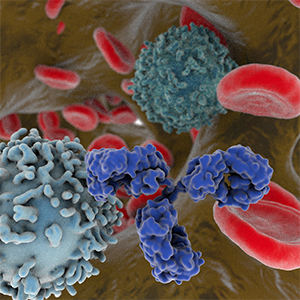 May is Melanoma Awareness Month, with awareness campaigns kicking off on the first Monday (May 3rd in 2021). Melanoma is caused by cancerous melanocytes, which are cells in the epidermis that normally make a pigment, melanin, that protects other skin cells from damaging sun rays. The American Cancer Society (ACS) estimates the lifetime risk for developing the disease is ~ 2.6% (1 in 38) for whites, and 0.6% (1 in 167) for Hispanics, and 0.1% (1 in 1,000) for Blacks. Overall, melanoma is more common in men, and the risk of melanoma increases with age. The ACS’ data suggest that ~ 106,110 new melanomas will be diagnosed (~62,260 in men and 43,850 in women) and ~ 7,180 people may die of the disease in the United States during 2021.
May is Melanoma Awareness Month, with awareness campaigns kicking off on the first Monday (May 3rd in 2021). Melanoma is caused by cancerous melanocytes, which are cells in the epidermis that normally make a pigment, melanin, that protects other skin cells from damaging sun rays. The American Cancer Society (ACS) estimates the lifetime risk for developing the disease is ~ 2.6% (1 in 38) for whites, and 0.6% (1 in 167) for Hispanics, and 0.1% (1 in 1,000) for Blacks. Overall, melanoma is more common in men, and the risk of melanoma increases with age. The ACS’ data suggest that ~ 106,110 new melanomas will be diagnosed (~62,260 in men and 43,850 in women) and ~ 7,180 people may die of the disease in the United States during 2021.
Approved antibody therapies for melanoma
Three antibody therapeutics (ipilimumab, nivolumab, pembrolizumab) that target the immune checkpoints CTLA-4 (CD152) or programmed cell death protein 1 (PD-1, CD279) are approved for melanoma.
- YERVOY (ipilimumab), which targets cytotoxic T-lymphocyte-associated protein 4 (CTLA-4), is indicated for the treatment of unresectable metastatic melanoma in adults and pediatric patients (12 years and older) and adjuvant treatment of patients with cutaneous melanoma with pathologic involvement of regional lymph nodes of more than 1 mm who have undergone complete resection, including total lymphadenectomy.
- KEYTRUDA (pembrolizumab), which targets PD-1, is indicated for the treatment of patients with unresectable or metastatic melanoma, and for the adjuvant treatment of patients with melanoma with involvement of lymph node(s) following complete resection.
- OPDIVO (nivolumab), which targets PD-1, is indicated for the treatment of patients with unresectable or metastatic melanoma and disease progression, including following ipilimumab and, if BRAF V600 mutation positive, a BRAF inhibitor, and for the adjuvant treatment of patients with melanoma with involvement of lymph node(s) following complete resection.
Combination therapy was shown to be superior to monotherapy with these checkpoint inhibitors in the Phase 3 Checkpoint study, which evaluated nivolumab monotherapy or nivolumab combined with ipilimumab versus ipilimumab monotherapy in patients with previously untreated unresectable or metastatic melanoma. The overall survival (OS) at 5 years was 52%, 44% and 26% in the nivolumab-plus-ipilimumab, nivolumab monotherapy, and ipilimumab monotherapy groups, respectively. However, Grade 3 or 4 treatment-related adverse events occurred more frequently in patients who received combination therapy (59%, 23%, and 28% of patients in the nivolumab-plus-ipilimumab, nivolumab, and ipilimumab treatment groups, respectively).
Investigational antibody therapies for melanoma
While the antibody therapeutics that target CTLA-4 and PD-1 have benefited melanoma patients, biopharmaceutical companies are developing novel antibody therapeutics that target other immune checkpoints such as LAG-3 or use different mechanisms of action.
- Bristol-Myers Squibb is developing relatlimab (BMS-986016), which is a human IgG4 antibody targeting LAG-3 on T cells, thereby restoring effector function of exhausted T cells. Primary results from the Phase 2/3 RELATIVITY-047 (CA224-047) trial evaluating the fixed-dose combination of relatlimab and Opdivo (nivolumab) versus Opdivo alone in patients with previously untreated metastatic or unresectable melanoma indicated that the trial met its primary endpoint of progression-free survival.
- Philogen S.p.A. is developing Nidlegy, which is composed of two single-chain variable fragment (scFv)-based immunocytokines that target extra-domain B of fibronectin (L19IL2 + L19TNF combination), as neoadjuvant intralesional treatment for melanoma patients with locoregional disease. Two randomized, controlled Phase 3 registration trials for intralesional application of Nidlegy as a neoadjuvant followed by surgery + eventual adjuvant treatments (standard of care) and compared to standard of care are currently ongoing in Europe (PIVOTAL; NCT02938299) and in the USA (Neo-DREAM; NCT03567889) in patients with fully resectable stage IIIB/C melanoma.
- Immunocore Ltd is developing tebentafusp, which comprises a high- affinity T cell receptor specific to a peptide sequence from the gp100 antigen, which is presented on melanoma tumor cells by HLA-A2, fused to an anti-CD3 single chain antibody fragment. In a Phase 3 study, tebentafusp demonstrated a statistically significant and clinically meaningful improvement in OS as a first-line treatment in metastatic uveal melanoma. Tebentafusp has been granted Breakthrough Therapy Designation, Fast Track designation and orphan drug designation by the FDA and Promising Innovative Medicine designation under the UK Early Access to Medicines Scheme for metastatic uveal melanoma. Immunocore will be working with the FDA to complete submission of a BLA for tebentafusp in the third quarter of 2021.
The Antibody Society continuously collects data for antibody therapeutics in the commercial clinical pipeline. We will provide updates on the antibody therapeutics being evaluated for melanoma in future posts.
Need help keeping up to date on US and EU approvals?
The Antibody Society maintains a comprehensive table of approved monoclonal antibody therapeutics and those in regulatory review in the EU or US. The table, which is located in the Web Resources section of the Society’s website, can be downloaded in Excel format.

